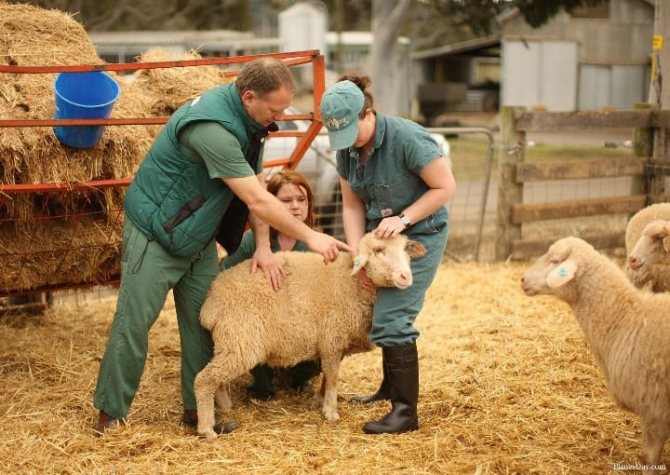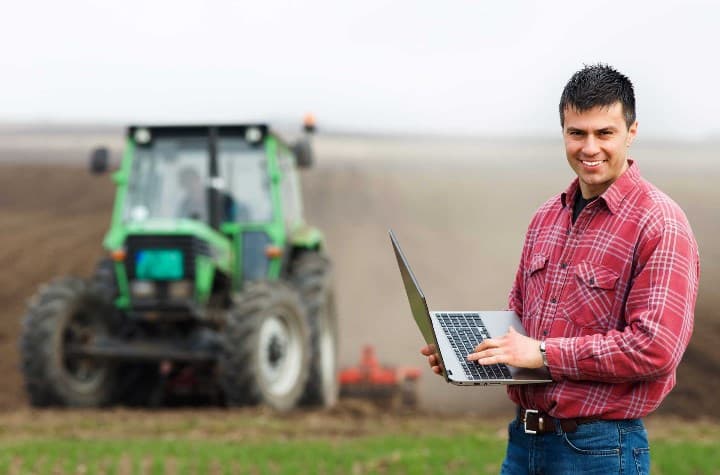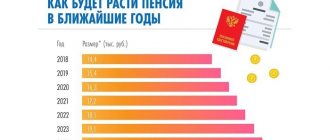Why was the list of rural professions added?
Pensioners living in rural areas with long-term service began to receive a pension supplement in the amount of 25% of the fixed payment from January 2020. The law on unfreezing the rural increase was signed in October 2020 (Article 9 of the Federal Law No. 350).
To eliminate confusion in determining professions, specialties, and positions that may be included in preferential length of service, the Government issued Resolution No. 1440 of November 29, 2018 with a complete list of them. However, many collective farmers were unable to receive the promised benefit. The situation looked absurd: people had worked in agricultural work for decades, but did not receive the promised money. The Pension Fund of Russia justified the refusals by the absence of certain professions in the approved list.
They let in not only office workers, but also veterinarians and mechanical workshop workers, who were removed from collective farms in the 90s when inter-district technical enterprises were created. Many related professions, such as land reclamation workers and individual entrepreneurs, were also not included in the list.
Therefore, the Ministry of Agriculture proposed expanding the list of beneficiaries. The new edition of the list of professions for pension supplements for agricultural workers was approved by Resolution No. 805 of June 25, 2019, which made it possible for village residents who did not receive the supplement to apply for the benefit retroactively.
Rice. 1. Not all agricultural professions are included in the preferential list
But, unfortunately, as the special project “Russkaya Gazeta” reports, even the new document does not take into account all the nuances that collective farmers voice in letters sent to the “Pension Bank of Issues”.
Regulatory framework
The possibility of increasing pension payments for former farmers was first discussed in 2013. Then an amendment to Law No. 400-FZ “On Insurance Pensions” was adopted. According to paragraph 14 of Article 17, the additional payment to pensioners who worked in rural areas in the agro-industrial complex was set at 25% of the basic part of the pension.
The amendment did not enter into legal force. In order to save budget funds, a moratorium was introduced for the period until 2020. The issue was repeatedly returned to in subsequent years, but to no avail. Following an instruction from the head of state, it was decided to begin paying the bonus from the beginning of 2020. Funds for the implementation of the program will be allocated from the federal budget.

How is rural experience calculated?
The rules for calculating periods of labor activity that are included in rural experience differ from the classical calculation.
Time is counted in agricultural output:
- Work before 1992 on the territory of the USSR in rural areas, regardless of position.
- Labor activity on the territory of the Russian Federation after January 1, 1992 at work according to the list.
In addition, periods of child care for up to one and a half years, in total no more than 6 years, and periods of temporary disability (paid sick leave) are added to the rural experience.
In contrast to the principles for calculating work experience, the time spent in the army, being registered at an employment center, or caring for the disabled is not added to the rural one.
Important! The procedure for confirming Soviet experience for a pension
To whom is it credited?
One entry in the work book about working on a collective farm does not give a pensioner grounds to claim additional payment for work experience in rural areas, and the Government of the Russian Federation has developed and approved special conditions for assigning payments from the Pension Fund.
A citizen who:
- receives an old-age or disability pension;
- has work experience in rural areas - 30 years or more;
- lives in rural areas;
- unemployed, that is, not currently working.
If at least one of the conditions is not met, then there will be no additional payments for retirement on the collective farm. Payment will be suspended from the moment of official employment in paid work. Also, the payment will be canceled if the pensioner decides to move to the city.
List of professions for pension supplement
To receive a 25% bonus, a village resident must have worked for more than 30 years in a position or profession included in the approved list.
For the period until 1992, there are no requirements for certain professions. The main thing is that the employee is employed:
- on a collective farm;
- on a state farm;
- at the machine and tractor station;
- at an intercollective farm enterprise or organization;
- in a peasant or farm enterprise;
- in the agricultural artel.

Rice. 2. Active development of livestock farming
For the period after 1992, a precise list was approved, divided into three areas:
- livestock farming;
- crop production;
- fish farming.
Table 1. List of professions and positions of agricultural workers giving the right to a pension increase, selectively
| Type of production | Profession, position |
| Crop production | Agronomists and agricultural technicians |
| Agrochemists | |
| Foreman and team leaders | |
| Melon growers | |
| Heads (manager, chairman, director) and ch. engineers and their deputies | |
| Mechanics and power engineers | |
| Workers of all types | |
| Adjusters, mechanics, technicians | |
| Managers and engineers | |
| Researchers and laboratory technicians | |
| Machinists and millers | |
| Collective farm members | |
| Livestock | Veterinarians, technicians, paramedics, etc. |
| Chief engineers and consultants | |
| Surveyors, hydrogeologists, hydraulic engineers | |
| Mechanics, mechanics, power engineers | |
| Directors, chairmen, managers, etc. | |
| Livestock specialists and instructors | |
| Laboratory assistants and livestock breeding specialists | |
| Workers of all types engaged in livestock farming | |
| Tractor drivers, drivers | |
| Members of a (farm) household | |
| Fish farming | Chairmen, directors, etc., their deputies |
| Fish farmers and ichthyologists | |
| Livestock specialists and fish farming engineers | |
| Marine hunters | |
| Workers of all types engaged in fish farming | |
| Turners, mechanics, mechanics, radio operators, electricians | |
| Collective farm members |
Source: PP No. 805, selectively
To include the period of work in a certain position in the preferential length of service, the name of the profession and type of production must fully correspond to the name approved in the list.
Comments (5)
Showing 5 of 5
- Raisa 03/04/2019 at 07:00
What is included in rural experience?answer
- Raisa 03/04/2019 at 07:52
I, S. Raisa Ivanovna, live in the Belgorod region. Alekseevsky district, village. Matreno-Gezovo, born in 1949, member of the collective farm. I worked on the collective farm all my adult life; according to the collective farmer’s work book, my experience is 43 years. She worked as a bookkeeper, bookkeeper, accountant, assistant. accountant, ch. buh, deputy director for financial and economic work, during which insurance contributions were paid to the Pension Fund. Until 01/01/92, the length of service was 28 years 4 months, from 01/01/92 - 15 years. And then I disappeared somewhere? There is no such position on these lists. Who compiled them? Can’t imagine collective farm life, where all the work in plant growing is done in the open air? And we, as a “quick response” team, were regularly sent to seasonal work, all the office workers. For sowing grain on seeders, for working with grain, weeded hectares of sugar beets 2 times a season and harvested them in the fall until frost, milked cows because there were not enough workers in the village and completed their main work on time, accepted reports and handed over to the district according to deadlines.
Official work on the territory of the Russian Federation, I am a Labor Veteran, awarded a diploma of honor from the Ministry of Agriculture of the Russian Federation. And why weren’t us accountants, economists, secretaries and typists included in these lists? Use your head, righteous gentlemen, and do not offend us villagers. And they offended us greatly. It's a shame.
answer
- Zinaida Bozhko, Belgorod region, Alekseevsky district 03/11/2019 at 13:16
I completely agree. This is a cry, this is pain. So all my life, as they say, we were jacks of all trades. And now the same milkmaids, ordinary collective farmers, whom the accountant once replaced at their workplace (because on collective farms, with rare exceptions, there was always a shortage of jobs), are also gloating.
Our dear lovely Government, do you even know that on collective farms, mostly women worked as accountants? We also had children and housekeeping. And we, if beet harvesting allows this, could not leave the field until 11 o’clock in the evening, while the beet growers were leaving for home, and we had to ship the cars so that production would not stop. No, you have no idea about this if you easily reached the verdict “they did not directly work in the field or with animals.” You have offended women, gentlemen. They probably saved a lot, and the rural women will survive, you decided. I wish you good health and success in your work.
answer
I have 37 years of rural experience. She worked as a pig farmer for 23 years, as a private soldier for 4 years, and as a rural baker for 11 years. Bakery is not included in the list of professions, and therefore I do not receive an increase. I became a member of the collective farm in 1977 and retired in 2020. Where can I find justice?
answer
I worked as the head of a production site on a collective farm for 5 years. From January 1, when adding a pension for rural areas, I was not given additional payment for rural areas, since the years of work in this position were not taken into account. The collective farm had only crop and livestock farming. The position of the site manager was a managerial one, this included everything - both crop production and livestock production.
answer
Share your opinionCancel reply
Read other news on this topic
- 8 742 105 19.07.2019
Retirement age table from 2020
Raising the retirement age in Russia to 65 years for men and 60 years for women began on January 1, 2020 and will occur in stages.
- 1 744 26.12.2019
Second pension for military pensioners
A military pensioner can receive two pensions: according to length of service (for military and equivalent service - in the Ministry of Internal Affairs, the National Guard, the Federal Penitentiary Service, the FSB, etc.)
- 3 260 13.10.2017
Pensions in 2018
.
All news
What professions have been added to the list?
The new list of specialties that give the right to an increase included, first of all, individual entrepreneurs engaged in agriculture.

Rice. 3. Entrepreneurship in rural areas
Also added here are works related to:
- security and maintenance of production agricultural facilities;
- equipment repair;
- equipment maintenance.
The list has been expanded to include:
- auxiliary workers;
- full service workers;
- gas welders;
- stokers;
- turners;
- hammermen;
- storekeepers;
- electrical engineers, instrument engineers, machine and tractor fleet engineers;
- security guards and watchmen;
- managers of warehouses and garages, etc.
After the amendments were made, an additional 30 thousand rural pensioners received the right to receive an increase.
Note! As of the end of the 1st quarter of 2019, 923 thousand people received the benefit.
Persons who, thanks to the expansion of the list, have become entitled to a bonus, will be paid the money on an accrual basis from January 2019, if the documents for its registration are submitted before the end of the current year. Those who apply for benefits after January 1, 2020 will receive an increase from the 1st day of the month following the submission of documents.
Material on topic! Conditions for receiving a teacher's pension based on years of service
Benefits for agricultural workers and farmers
Working in rural areas presents various challenges. They are connected not only with climatic conditions and living conditions, but also with the amount of wages. People from small villages have significantly less opportunities to earn money than residents of big cities. In order to somehow attract hardworking citizens here, the state provides benefits to rural workers.
Who is eligible?
Social and material support is provided to rural residents at the country level as a whole and in accordance with regional legislation. The latter often becomes an additional bonus for a person working in the village. However, simply living in a rural area is not enough to qualify for a benefit. The following are entitled to various benefits:
- employees of the pedagogical sphere (teachers, educators);
- medical employees;
- social workers;
- cultural workers;
- farmers with peasant farms.
However, to receive preferences, a number of conditions must be met. Thus, Russians who permanently live in rural areas are eligible for support (exceptions are possible for teachers - they do not have to live here, but then the list of benefits will be smaller).
Cash payments
Specific cash payments for agricultural workers are rare. However, they can be expressed in the following forms:
- additional payments to wages or establishing a minimum salary for a specific position, based on the cost of living or the average salary in the region;
- grants.
The latter are especially common among farmers who want to develop their own farms. The amount of the subsidy can reach 40,000,000 rubles, however, the person is not given the money for the entire time - within 5–15 years he will have to return it. In essence, this is preferential lending to businessmen involved in agriculture.
Be sure to read it! Payments of pensions to migrants from Ukraine in Russia in 2020 by the pension fund
Monetary incentives are also found among social workers. But to receive them you will have to win a government competition in one of the categories or become a prize-winner. The payment amounts here are also significant: 200,000–500,000 rubles.
Non-working pensioners who have worked in the agricultural sector for over 30 years can count on an additional increase in their pension. According to paragraph 14 of Art. 17 of Federal Law No. 400-FZ of December 28, 2013, the surcharge for them is 25%. It applies to the fixed part of the payment, which from January 1, 2020 is equal to 5,686.25 rubles.
Therefore, the amount of the increase is RUB 1,421.56. When calculating “rural” experience, not all specialties are taken into account, but only those listed in Decree of the Government of the Russian Federation No. 1440 of November 29, 2020. These, for example, include: the head of a peasant farm, a mechanic for repairing agricultural machines, laboratory assistants, etc. In general, these are specialties related to the fields of crop production, livestock farming, and fishing.
Labor benefits
Labor preferences for a working person play an important role. So, for those living in rural areas they are as follows:
- the possibility of retraining, the need for which arose as a result of changes in working conditions, without additional personal expenses;
- establishing monthly payments equal to 1 minimum wage for the period of forced unemployment (for example, if a school is closed and the teacher simply has nowhere to work).
Even in Soviet times, most agricultural work, including physically difficult work, was performed by women. At the same time, expanded labor benefits were provided for them (Resolution of the Supreme Court of the RSFSR No. 298/3-1 of November 1, 1990). Many points of this regulatory act are still valid, but with some changes prescribed in the Labor Code of the Russian Federation. The most important ones look like this (true for women working in rural areas):
- reduction of the working week to 36 hours while maintaining the wage rate (if more hours are worked, the excess hours are paid as overtime);
- the possibility of receiving an additional day off without saving a salary once a month at the request of a woman (paragraph 2 of Article 262 of the Labor Code of the Russian Federation).
For teaching staff, other formats of labor benefits are established if they work in rural schools. The preferences look like this:
- the working week has been reduced to 18 hours;
- annual paid leave is 56 days;
- possibility of part-time work.
Such employees have the right to retire early, having completed 15 years of teaching experience with a total experience of over 25 years. True, they do not establish an additional payment of 25% to the fixed payment to the pension. The nature of salary calculation there is different.
Housing benefits
The housing problem is one of the most pressing for Russian citizens, even if they live in rural areas. Housing benefits provided for these people can be divided into 2 types:
- Providing housing . Mostly these forms of support apply to workers in the teaching, medical and social spheres. For example, under the “Zemsky Doctor” program, young doctors receive a one-time compensation payment in the amount of about 70% of the cost of the purchased housing. It also provides for the transfer of provided public housing into the ownership of the employee after 10 years of work in his position.
- Compensation for housing and communal services . In fact, compensation is broader in nature. For example, at the expense of the state, you can reimburse the costs of purchasing firewood for heating during the cold season, renting housing in the absence of your own. As for housing and communal services, the amount of compensation varies from 50 to 100% and is assigned to certain categories of workers. The final refund amount is determined at the regional level. There are regions where doctors are compensated 70–100% of the normal utility costs. Reimbursable housing and communal services include, in particular: water supply, electricity, heating, gas.
A housing program is usually associated with the need of a specialist or his family to improve living conditions. That is, having your own house or apartment often deprives you of the right to receive assistance from the state.
Large families raising 3 or more young children at the same time can receive an apartment for 5 years to live under a social rental agreement. And for young parents there is a regional program “Young Family”, under which you can buy housing at partial cost (the rest is paid by the state).
Other forms of benefits
The state tries to help village residents who work conscientiously in every possible way. Therefore, other forms of benefits are provided for them. This, for example, includes free (not for everyone):
- medications and prescription medications;
- vouchers to a sanatorium;
- provided medical services.
It may also provide for free travel on public transport or, more often, discounts on tickets.
All together allows a rural resident to reduce their own costs, and therefore improve the quality of life of their family. To do this, it is enough to conscientiously fulfill your job duties or go to work in one of the budget sectors, where the list of preferences offered in villages is maximum.










